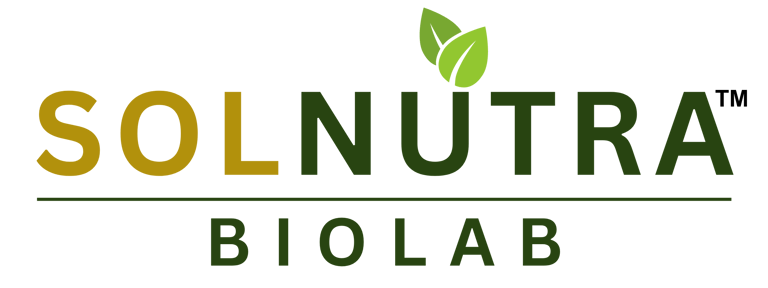Sourcing Ethically: How to Vet Botanical Suppliers
4 min read


Understanding Ethically Sourced Botanicals
Ethical sourcing refers to the practice of obtaining goods, in this case botanicals, in a manner that is responsible, sustainable, and just. It encompasses several critical aspects such as sustainability, fair labor practices, and environmental stewardship. When sourcing botanicals, it is essential to ensure that the plants are cultivated and harvested in ways that do not deplete natural resources or harm ecosystems. Sustainable practices contribute to the long-term health of the botanical supply and are important not only for the environment but also for the communities involved in production.
Moreover, fair labor practices are an integral part of ethical sourcing. Workers in the botanical supply chain should be compensated fairly and work under safe conditions. This includes ensuring that there are no forms of exploitation, child labor, or discrimination. By prioritizing fair labor practices, companies can foster strong relationships within communities and ensure that all parties benefit from the sourcing process. When businesses adopt these standards, they promote a culture of respect and dignity for workers, leading to improved morale and productivity.
Environmental stewardship is another key component of ethical sourcing. It involves taking active steps to protect natural ecosystems and promote biodiversity. This can include practices such as reforestation, habitat protection, and minimizing the ecological footprint of harvesting activities. Consumers are increasingly concerned about the environment, and sourcing botanicals responsibly can positively influence consumer choices. By focusing on ethically sourced botanicals, businesses not only contribute to environmental health but also enhance the quality and efficacy of their products. Ethical sourcing is not merely a trend; it represents a fundamental shift towards more sustainable practices that prioritize the welfare of people and the planet.
Supplier Due-Diligence Checklist
When it comes to sourcing botanicals ethically, implementing a robust supplier due-diligence checklist is crucial. This checklist not only helps in identifying reliable suppliers but also ensures that the products meet high ethical standards. Here are key elements to consider during the vetting process.
Firstly, verify that the supplier holds necessary certifications, such as USDA Organic or Fair Trade. These certifications signify that the supplier adheres to specific standards in terms of cultivation practices and labor conditions. Consult the latest regulations to ensure the certifications are current and legitimate.
Another vital aspect is the traceability of products from farm to shelf. It is essential to confirm that the supplier can provide a complete supply chain overview. This transparency ensures that the sourced botanicals can be traced back to their original source, which is key in assessing quality and ethical compliance. Ask for documentation that outlines the entire journey of the botanical—from cultivation to processing, and finally, to distribution.
The Certificate of Analysis (COA) history is another component worthy of attention. Ensure that the supplier can provide COAs for their products, which detail the results of testing done to confirm quality and purity. Consistent and verifiable COA records will help you ascertain that the supplier maintains stringent quality controls and complies with safety regulations.
Finally, supplier audits play a fundamental role in the evaluation process. Conducting regular audits can provide insights into the supplier's operational practices, sustainability efforts, and labor conditions. This practice not only helps safeguard your supply chain but also demonstrates your commitment to ethical sourcing.
By diligently implementing this checklist, businesses can significantly minimize risks associated with unethical sourcing and ensure that their botanical suppliers align with their values and standards.
Identifying Red Flags in Supplier Relationships
When sourcing botanicals, it is essential to identify potential red flags in supplier relationships. Recognizing these warning signs can help businesses avoid unethical partnerships that could jeopardize their commitment to responsible sourcing. One of the primary indicators to consider is a supplier's lack of transparency regarding their sourcing practices. If a supplier is unwilling to disclose information about the origin of their botanicals or the methods used in their production, it raises concerns about the ethical integrity of their operations. Transparency is critical in establishing trust, and any reluctance to share this information can signal deeper issues.
Inconsistent product quality is another significant red flag. Reputable suppliers should provide consistent, reliable products that meet quality standards. If there are frequent variations in the quality or potency of the botanicals provided, it could indicate a lack of stringent quality control measures or substandard production practices. This inconsistency not only impacts the end product but can also affect customer satisfaction and compromise the reputation of businesses that rely on these ingredients.
Furthermore, suppliers that make unverified claims about their products can pose significant risks. Be cautious of suppliers who advertise their botanicals as "organic," "wildcrafted," or "pure" without providing proper documentation or certifications. It is imperative to verify any such claims, as misrepresentation can not only tarnish a brand's image but also violate consumer trust. Additionally, the absence of recognized certifications, such as Good Agricultural Practices (GAP) or Fair Trade certifications, should be a clear warning. Certifications serve as a safeguard, indicating that the supplier complies with specific industry standards concerning environmental sustainability and social responsibility.
By being vigilant and attentive to these potential red flags, businesses can cultivate ethical sourcing practices and establish fruitful supplier relationships while upholding their commitment to sustainability and responsible sourcing.
Fair Pricing Without Compromising Quality
Negotiating fair prices with botanical suppliers is a skill that can significantly impact the sustainability and ethics of your sourcing practices. By understanding various pricing structures, you can better evaluate suppliers and ensure that you are receiving quality materials without overpaying. One of the foremost strategies is to cultivate long-term relationships with your suppliers. Building trust fosters a collaborative environment where both parties can benefit from open communication regarding pricing and quality expectations.
Start by researching the standard pricing for the botanicals you require. Familiarize yourself with industry benchmarks to gain insights into typical costs. This knowledge will empower you during negotiations and enable you to identify what represents fair pricing during discussions. Moreover, demonstrating an understanding of the market can strengthen your position and lead to more favorable terms.
Another crucial aspect is to inquire about the supplier's pricing structure. Some suppliers may offer tiered pricing based on volume or additional services, such as quality tests or sustainable farming practices, which could justify a higher price. Be sure to evaluate all aspects of their offerings to determine whether their pricing aligns with the quality of materials provided. Leveraging Solnutra’s vetted supplier network can further enhance this process. Access to pre-screened suppliers allows you to compare prices and negotiate confidently, knowing that the suppliers have met specific quality and ethical sourcing standards.
Finally, consider making a request for introductions through Solnutra’s network. By connecting with trusted suppliers, you can start building relationships that prioritize fair pricing and high-quality botanicals, leading to long-term collaborations that can benefit both parties. Explore these opportunities to ensure your sourcing efforts align with ethical practices while maintaining profitability.
